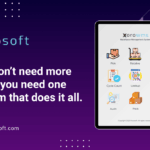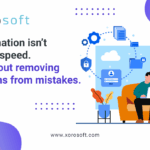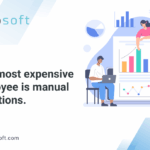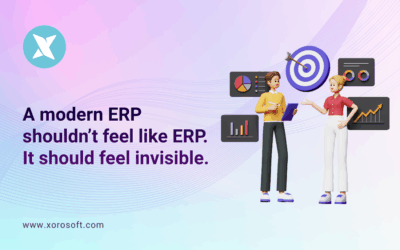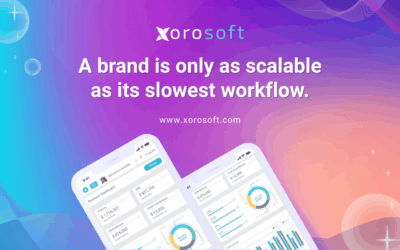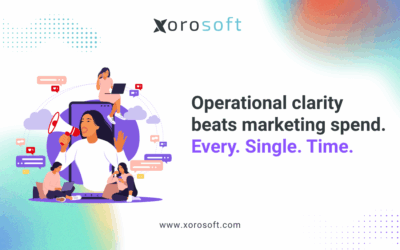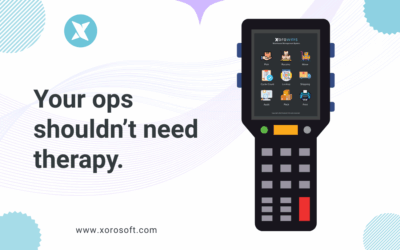
Introduction to ERP systems and their significance in modern business operations
In today’s rapidly evolving business landscape, organizations are constantly seeking ways to streamline their operations, enhance efficiency, and improve customer satisfaction. At the heart of this transformation lies the Enterprise Resource Planning (ERP) system, a powerful tool that has revolutionized the way businesses manage their core functions. As an experienced writer, I’ve witnessed firsthand the profound impact ERP solutions can have on organizations of all sizes, across various industries.
ERP systems integrate and automate a wide range of business processes, from finance and accounting to inventory management, human resources, and customer relationship management. By consolidating data and providing a centralized platform for decision-making, ERP solutions empower businesses to make informed, data-driven choices that drive growth and profitability. In a world where agility and responsiveness are key to success, the implementation of a robust ERP system has become a strategic imperative for organizations seeking to stay ahead of the curve.
Understanding the benefits of an ERP solution for businesses
The benefits of an ERP system are manifold, and they extend far beyond mere efficiency gains. By integrating disparate systems and streamlining workflows, ERP solutions help businesses achieve greater visibility, enhanced collaboration, and improved decision-making capabilities. This, in turn, leads to increased productivity, reduced operational costs, and a heightened ability to respond to changing market demands.
Moreover, the integration of ERP systems with advanced technologies, such as artificial intelligence and machine learning, has unlocked new levels of business intelligence and predictive analytics. This empowers organizations to make more informed decisions, anticipate and mitigate risks, and capitalize on emerging opportunities.
Introducing XoroERP and its key features
As a leading provider of ERP solutions, Xorosoft has developed a comprehensive and innovative platform called XoroERP. Designed to cater to the diverse needs of businesses across industries, XoroERP offers a robust suite of features that are tailored to drive operational excellence and customer satisfaction.
At the core of XoroERP lies its modular architecture, which allows organizations to seamlessly integrate and manage various business functions, including finance, inventory, sales, and customer relationship management. This modular approach ensures that businesses can customize the system to their specific requirements, thereby maximizing the return on their investment.
Exploring the power of self-service portals in XoroERP
One of the standout features of XoroERP is its robust self-service portal, which empowers customers to take control of their interactions with the organization. This innovative solution is a game-changer in the world of ERP, as it redefines the customer experience and sets a new standard for customer satisfaction.
How self-service portals enhance customer satisfaction in ERP systems
The self-service portal in XoroERP is designed to put the power in the hands of the customer, enabling them to access a wide range of functionalities and information at their convenience. By providing customers with the ability to view their order status, track shipments, manage their accounts, and even initiate service requests, the self-service portal eliminates the need for time-consuming phone calls or email exchanges, ultimately enhancing the overall customer experience.
Moreover, the self-service portal in XoroERP is intuitive and user-friendly, with a clean and responsive design that ensures a seamless experience across desktop and mobile devices. This level of accessibility and ease of use is a key driver in fostering customer loyalty and satisfaction, as it demonstrates the organization’s commitment to prioritizing the needs of its customers.
Leveraging self-service portals for efficient inventory management in XoroERP
The self-service portal in XoroERP also plays a crucial role in streamlining inventory management processes. Customers can easily view real-time inventory levels, place orders, and track the status of their shipments, all from the comfort of their own devices. This level of transparency and control empowers customers to make informed decisions, reducing the likelihood of stockouts or delays, and ultimately enhancing their overall satisfaction with the organization.
Furthermore, the self-service portal’s integration with the ERP’s inventory management module ensures that customer orders are processed and fulfilled efficiently, with minimal manual intervention. This not only improves the customer experience but also optimizes the organization’s internal operations, leading to cost savings and improved profitability.
Streamlining accounting processes with self-service portals in XoroERP
The self-service portal in XoroERP also extends its functionality to the realm of accounting and financial management. Customers can access their invoices, payment histories, and account balances directly through the portal, eliminating the need for frequent communication with the accounting team. This level of transparency and self-service empowers customers to take an active role in managing their financial obligations, fostering a sense of trust and collaboration between the organization and its customers.
Moreover, the self-service portal’s integration with the ERP’s accounting module ensures that all financial transactions are accurately recorded and reconciled in real-time. This not only enhances the customer experience but also strengthens the organization’s financial reporting and compliance capabilities.
The role of self-service portals in improving customer relationship management in XoroERP
The self-service portal in XoroERP also plays a pivotal role in enhancing the organization’s customer relationship management (CRM) efforts. By providing customers with a centralized platform to access information, initiate service requests, and manage their accounts, the self-service portal fosters a sense of empowerment and engagement, which is crucial for building long-lasting, mutually beneficial relationships.
Furthermore, the self-service portal’s integration with the ERP’s CRM module allows the organization to gain valuable insights into customer behavior, preferences, and pain points. This data-driven approach enables the organization to tailor its products, services, and communications to better meet the evolving needs of its customers, ultimately driving higher levels of satisfaction and loyalty.
Key considerations when implementing self-service portals in an ERP system
While the implementation of self-service portals in an ERP system can yield significant benefits, it is essential to carefully consider several key factors to ensure a successful and seamless integration. These considerations include:
- User Experience Design: Crafting an intuitive, user-friendly, and visually appealing self-service portal is crucial for driving customer adoption and satisfaction. The portal’s design should be responsive, accessible, and tailored to the specific needs and preferences of the organization’s customer base.
- Data Security and Privacy: Ensuring the security and privacy of customer data is of paramount importance. Robust data protection measures, such as encryption, access controls, and compliance with industry regulations, must be implemented to build trust and confidence among customers.
- Integration and Interoperability: The self-service portal must be seamlessly integrated with the ERP system’s various modules, ensuring a cohesive and streamlined user experience. This level of integration is essential for maintaining data accuracy, reducing manual interventions, and enhancing overall operational efficiency.
- Change Management: The implementation of a self-service portal represents a significant shift in the way customers interact with the organization. Effective change management strategies, including employee training and customer communication, are crucial for ensuring a smooth transition and driving user adoption.
- Continuous Improvement: Ongoing monitoring, feedback gathering, and iterative enhancements are essential for maintaining the relevance and effectiveness of the self-service portal. By continuously adapting to customer needs and market trends, organizations can ensure that the self-service portal remains a valuable and indispensable component of their ERP system.
Conclusion: Unveiling the full potential of self-service portals in XoroERP for maximizing customer satisfaction
In conclusion, the self-service portal in XoroERP is a powerful tool that empowers organizations to enhance customer satisfaction, streamline operations, and drive business growth. By putting the customer at the center of the ERP experience, the self-service portal fosters a sense of empowerment, transparency, and collaboration, ultimately strengthening the bond between the organization and its customers.
By leveraging the capabilities of XoroERP’s self-service portal, organizations can unlock new levels of efficiency, responsiveness, and customer loyalty, positioning themselves for long-term success in the ever-evolving business landscape.
To unlock the full potential of self-service portals in your ERP system, I encourage you to schedule a demo with Xorosoft. Their team of ERP experts will guide you through the features and capabilities of XoroERP, helping you to maximize customer satisfaction and drive your business forward.


